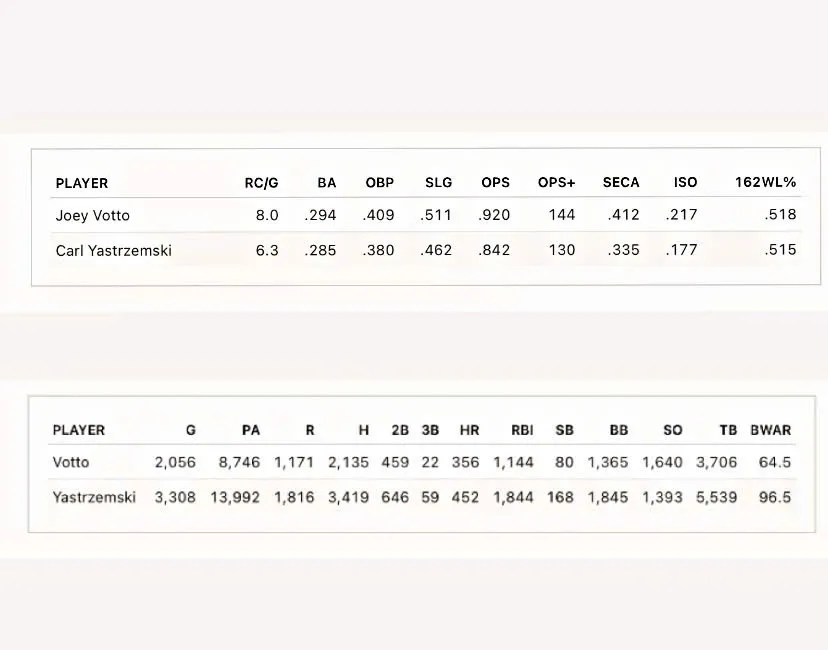
“As baseball’s landscape shifts, Joey Votto isn’t just a future Hall of Famer—he embodies what the Hall of Fame will represent in the years to come”
Baseball’s evolution is inevitable, a game that transforms with each passing generation. The sport that fans remember from childhood is not the same as the one they watch today. This isn’t just a case of nostalgia; it’s a reality of how the game adapts over time.

Enter Joey Votto, a player whose career began in an era vastly different from the one he retires from. Born in 1983, the same year that baseball legend Carl Yastrzemski hung up his cleats, Votto’s journey has been nothing short of remarkable. But labeling him simply as a “future Hall of Famer” doesn’t quite capture his significance. Votto isn’t just on his way to Cooperstown; he’s shaping the very standards by which future generations of Hall of Famers will be judged.
Votto’s retirement announcement marks the end of an era, but it also prompts a deeper conversation about what it means to be a Hall of Famer in today’s game. The standards that once seemed immutable—3,000 hits, 500 home runs—are being re-evaluated in light of the modern player’s experience. Votto’s career numbers may not reach the traditional milestones, but his impact on the field is undeniable. He led his generation as one of the best, and that’s the only criterion that truly matters.
When comparing Votto to legends like Yastrzemski, the discussion becomes even more intriguing. While Yaz amassed over 3,400 hits, Votto’s statistical achievements, when adjusted for ballpark and era, reveal him as the superior hitter on a percentage basis. However, Votto’s Hall of Fame candidacy is not just about numbers. It’s about his role as a standard-bearer for future Hall of Famers—those whose greatness may not be fully captured by traditional stats.

In the past, players like Yastrzemski were celebrated for their iconic seasons and lifetime achievements, like Yaz’s 1967 Triple Crown. Today, players like Votto are measured by advanced metrics that paint a fuller picture of their contributions. Votto’s career, spanning from 2007 to 2023, places him among the game’s elite in numerous categories, even if he doesn’t boast the same cumulative stats as his predecessors.
As baseball continues to evolve, so too will the criteria for Hall of Fame induction. Joey Votto’s career serves as a reminder that greatness is not solely defined by hitting certain numbers but by being one of the best in your era. As the game changes, future Hall of Famers will likely look more like Votto—players who excel in the nuances of the game and set new standards for excellence.
In this way, Votto isn’t just the future of the Hall of Fame; he’s a glimpse into how we will honor baseball’s greats in the years to come.






